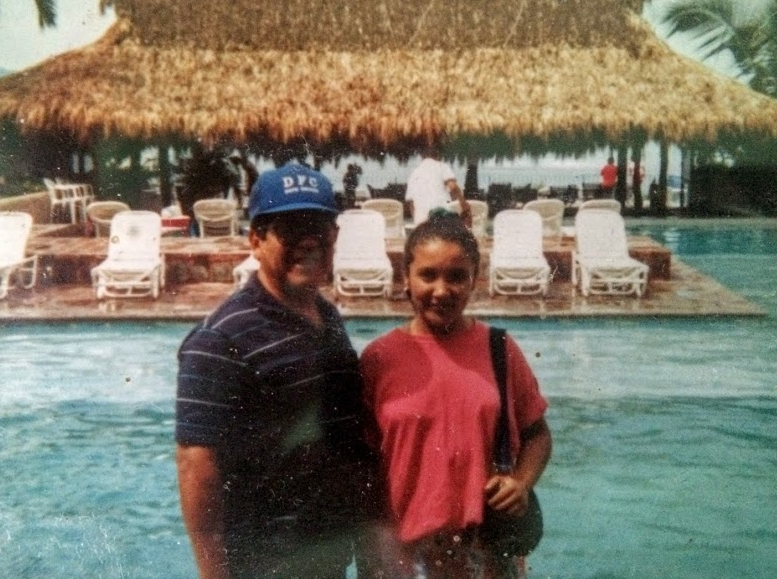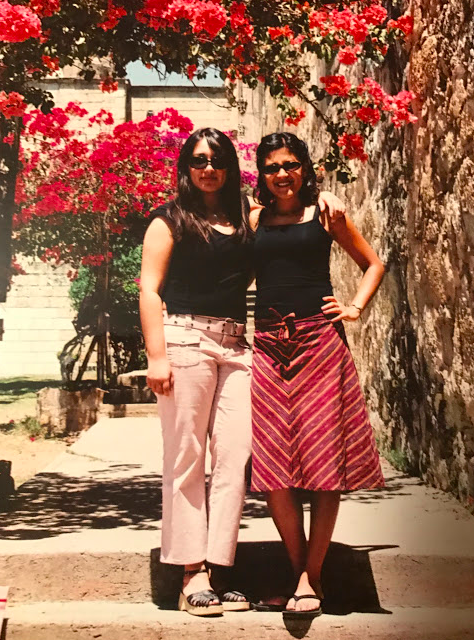Guest Post for International Anti-Street Harassment Week
By: Araceli Cruz

I remember the heat. I, a 9-year-old child, played alone on the beach. The sun was brutal that afternoon but I didn’t mind one bit. You see, I was on vacation — and I believe that trip was one of the last times that my entire family traveled together to Puerto Vallarta, Mexico. As I sat on the shore covering myself with sand, a wave pulled me into the ocean. I quickly got myself up but felt disoriented because the salty seawater blurred my vision. I then realized I couldn’t walk. I felt a strong hold on my leg. I looked down to see what was preventing me from moving — it was a man. I remember looking down at him as the small waves came over him. He continued to grasp at my legs and I remained motionless. The next thing I see is my mother running over to me. She began to smack him on his head and arms until he let go of me. In retrospect I think this man could have been drunk, but this would become the first time a man not only harassed me but also touched me without consent.
Growing up, I viewed getting catcalled as a way of life. “Latinas get harassed, and there’s nothing you can do about it,” was like a slogan that my parents ingrained in my head without having to say it. I understood very quickly that I could not wear anything too revealing because that meant “I was asking for it.”

My older sister, however, wouldn’t take the barrage of sexual come-ons. She fought back, regardless of who won. I remember one day, in particular, we were walking down the street in San Francisco near the Mission District, and a man passed us and whispered to us in Spanish “Oh my god.” My sister turned around and yelled at him (so loud that others on the street turned out) “Yes, it is god that I pray would make you more attractive!!!” I realize this comeback is humorous and sort of ridiculous, but it’s rare to not only fire back at a call, but say something that makes you feel better.
My boiling point came years later when I lived in New York City. On a freezing morning in February, I walked down a snow-covered street in Astoria wearing a huge puffy jacket that basically covered me from head to toe. Two men in a truck stuck their heads out the window and began hurling catcalls at me, and I remember thinking, “How can they tell I am even a woman?” I realized then that it didn’t matter if I wore a strapless top, a puffy jacket, or even take the long way home to avoid men on street corners — there’ll always be some men that cannot help but make unwarranted comments.
It’s an ongoing issue that won’t go away regardless of if I say “f**k you” to their face or even call the police after getting hit in the head. I wish there were precaution I could take to prevent harassment, but mostly I will remain vigilant.
 Araceli Cruz is a freelance journalist living in Hillsborough, North Carolina. She’s covered Latinx topics at Mitú and Vivala, and has written for publications such as The Village Voice, GOOD Magazine, and Rolling Stone, among others. Follow her on Twitter: @chelipj
Araceli Cruz is a freelance journalist living in Hillsborough, North Carolina. She’s covered Latinx topics at Mitú and Vivala, and has written for publications such as The Village Voice, GOOD Magazine, and Rolling Stone, among others. Follow her on Twitter: @chelipj
